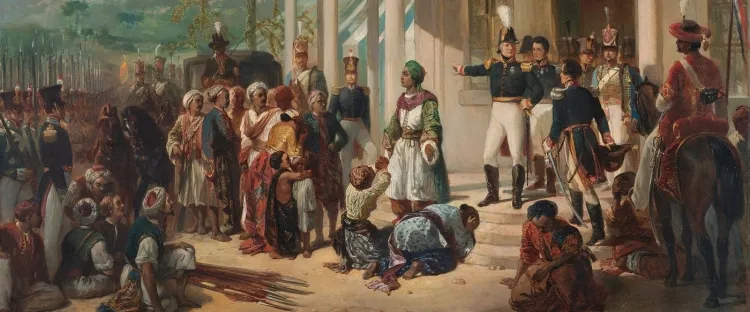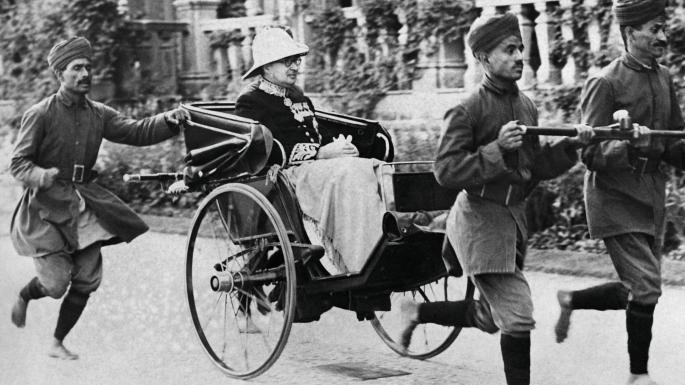The British Raj: An Era of Colonial Dominance in India...!!!
The British rule in India was a period of significant transformation and struggle. The legacy of this era is a testament to the resilience and determination of the Indian people in their quest for freedom and self-determination.

British rule in India, commonly known as the British Raj, spanned from 1858 to 1947. This era witnessed significant political, economic, and social transformations that left a lasting impact on the Indian subcontinent.
Early British Presence and the East India Company
The British presence in India began in the early 1600s with the establishment of the East India Company. Initially focused on trade, the company gradually expanded its influence by securing trading rights and establishing forts and settlements. Over time, the company's control extended to large parts of India, leading to the exploitation of Indian resources and the imposition of British economic policies.
The Indian Rebellion of 1857
The Indian Rebellion of 1857, also known as the Sepoy Mutiny, was a significant uprising against British rule. The rebellion was ignited by various grievances, including the introduction of new rifle cartridges rumored to be greased with cow and pig fat, offending both Hindu and Muslim soldiers. The rebellion was eventually suppressed, leading to the dissolution of the East India Company and the transfer of control to the British Crown.

The British Raj (1858-1947)
The British Raj was formally established in 1858, with Queen Victoria being proclaimed Empress of India in 1876. During this period, the British implemented a centralized administrative system, dividing India into provinces and districts governed by British officials. The British introduced a range of reforms, including the establishment of a modern education system, the construction of railways and telegraph networks, and the introduction of a uniform legal code.
Economic Exploitation and Impact
The British Raj had a profound impact on India's economy. The British implemented policies that favored the export of raw materials from India to Britain and the import of British manufactured goods. This led to the deindustrialization of India's traditional industries and the impoverishment of the Indian peasantry. The introduction of cash crops, such as cotton and indigo, further exacerbated the economic hardships faced by Indian farmers.
Social and Cultural Changes
The British rule brought about significant social and cultural changes in India. The introduction of Western education and the English language led to the emergence of a new class of educated Indians who played a crucial role in the nationalist movement. The British also implemented social reforms, such as the abolition of practices like sati (the immolation of widows) and the promotion of women's education.
The Rise of Indian Nationalism
The oppressive policies of the British Raj fueled the growth of Indian nationalism. Leaders like Mahatma Gandhi, Jawaharlal Nehru, and Subhas Chandra Bose emerged as prominent figures in the struggle for independence. The Indian National Congress, founded in 1885, became the principal organization advocating for self-rule.

The Road to Independence
The struggle for independence gained momentum in the early 20th century, with mass movements and civil disobedience campaigns challenging British authority. The Quit India Movement of 1942 and the widespread participation in the Indian National Army during World War II further intensified the demand for independence. Finally, on August 15, 1947, India gained independence, marking the end of nearly two centuries of British rule.
Legacy of British Rule
The legacy of British rule in India is complex and multifaceted. While the British introduced modern infrastructure and administrative systems, their policies also led to economic exploitation and social upheaval. The impact of British rule continues to be felt in India's political, economic, and cultural landscape.
The British rule in India was a period of significant transformation and struggle. The legacy of this era is a testament to the resilience and determination of the Indian people in their quest for freedom and self-determination.
What's Your Reaction?

















